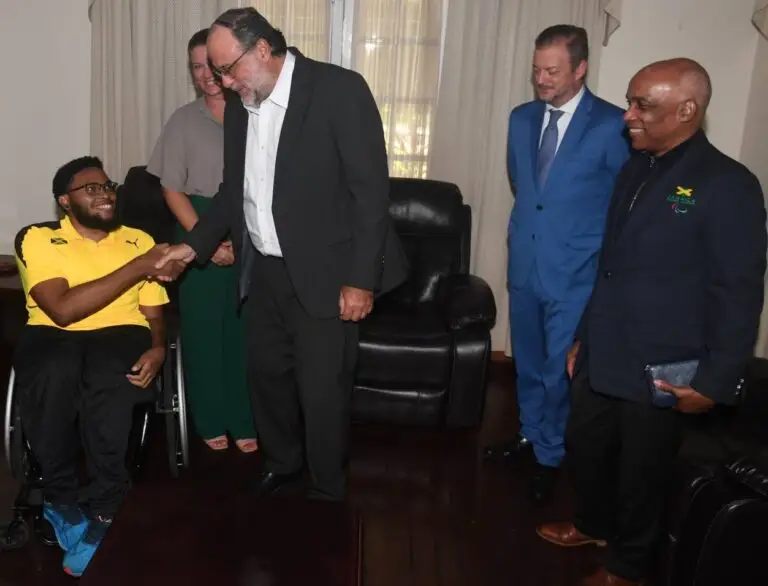Kingston, Jamaica – As the global Paralympic movement expands, Jamaica finds itself at a pivotal moment where policy reform and corporate investment could define the future of its Para athletes. The Jamaica Paralympic Association (JPA) is calling for a dedicated national sports policy to ensure sustained support, better infrastructure, and broader social inclusion for athletes with disabilities.
Christopher Samuda, President of the JPA, has been vocal about the need for structured change, emphasizing that Jamaica’s Paralympic success must go beyond competition and medals. Instead, he insists that a comprehensive framework is necessary to establish equal opportunities for Para athletes in areas such as education, employment, and community accessibility.
“It’s not just about sports—it’s about rights, representation, and resources,” Samuda explained. “Our Paralympians are not asking for charity; they’re demanding the same level of investment and institutional backing that able-bodied athletes receive. A national sports policy is the first step in making that happen.”
The JPA recently hosted key officials from the International Paralympic Committee (IPC) and the Americas Paralympic Committee, discussing how to elevate Jamaica’s commitment to Paralympic sports. The meetings underscored that while there is widespread recognition of the need for change, tangible action has been slow.
Breaking the Cycle of Neglect
For decades, Jamaica has been hailed as a powerhouse in track and field, but the nation’s approach to Para sports remains underdeveloped. Para athletes often struggle with inadequate training facilities, limited funding, and a lack of mainstream media coverage.
IPC President Andrew Parsons noted that while smaller nations often face economic constraints, prioritizing inclusivity can have long-term social and financial benefits.
“If a nation wants to measure its progress, it must look at how it treats marginalized communities,” Parsons said. “Para sports aren’t just about competition—they’re about economic empowerment, accessibility, and changing the way society functions. Every dollar invested in Paralympic programs comes with significant social returns.”
According to the IPC, countries that actively invest in Para sports experience increased corporate sponsorships, community engagement, and improved policies surrounding disability rights. Parsons urged Jamaican businesses to see Para sports not as a charitable cause, but as an opportunity to foster national growth.
The Role of the Private Sector in Paralympic Growth
The private sector has historically been hesitant to invest in Paralympic initiatives, despite the growing audience and commercial potential of disability sports worldwide. Samuda insists that corporate Jamaica must step up, not just as sponsors but as partners in developing sustainable programs.
“We need to move past token gestures. It’s time for businesses to recognize that supporting Para sports is an investment in the country’s future. Whether it’s sponsorships, job opportunities for athletes, or funding infrastructure, the private sector has a crucial role to play,” Samuda stated.
With the upcoming National Paralympic Day on March 11, the JPA plans to roll out an expanded version of its I Am Phenomenal campaign, designed to shift public perception and inspire action. The campaign will feature community engagement projects, athlete showcases, and corporate partnerships aimed at securing long-term backing for Jamaica’s Para athletes.
A Defining Moment for Jamaica’s Paralympic Future
While the discussions between the JPA, IPC, and local stakeholders have set the stage for progress, the real challenge lies in execution. Without a formalized sports policy, Para athletes remain vulnerable to inconsistent funding and fragmented development programs.
Samuda remains hopeful but firm in his stance:
“We’ve had enough conversations. The time for action is now. If we truly believe in equality, then it’s time to prove it—not just with words, but with policies, funding, and real commitment to change.”
As Jamaica moves forward, the success of its Paralympic movement will depend not just on the athletes, but on the nation’s willingness to create an inclusive sports landscape that benefits all.

